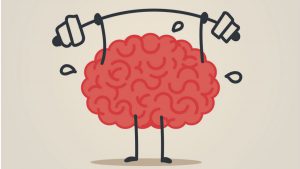
Staying emotionally and mentally balanced during college is difficult, especially during the transition into higher education and when students are preparing to leave college. Students tend to forget about or postpone their own self-care and needs. They neglect their mental health, believing that they don’t have time to deal with stress and anxiety. Often, students don’t reach out to talk about what they are experiencing because they worry about what people will think. They may believe that they should be able to work through difficult times themselves. They think that if they can’t handle the stress, they aren’t strong enough. And they don’t want to worry or disappointment their family.
Parents can help by acknowledging and talking about signs that their student seems overwhelmed. When you talk about what you’re seeing, your student can see that you care and that you’re concerned, not disappointed in them. With your support and encouragement, your student is likely to be more willing to seek help. First- and second-year college students typically do not have the life skills they need to work through new situations entirely on their own. Asking for help is the best way to get the assistance they need. At the same time, they can be learning how to take care of themselves for the future. So make sure you’re available–by phone or online if not in person.
Warning Signs
Signs of stress and depression can manifest in a variety of ways, sometimes depending on the person and the culture they are from. Parents know their student best, so take these signs as clues to watch out for, but know it’s not a comprehensive list of symptoms and should not be used as a way to diagnose your student.
Many of these symptoms are common responses to any major life transition. It’s when these symptoms start to interfere with a student’s ability to function that they are more concerning and your student should consider seeking help.
Mood symptoms:
- Irritability
- Lack of motivation
- Increased tearfulness or crying
- Sadness
- Hopelessness
- Trouble concentrating
- Fearfulness
- Thoughts of suicide
Physical symptoms:
- Headaches
- Excessive tiredness
- Upset stomach
- Indigestion
- Body aches, muscle tension
- Lack of appetite or overeating
- Poor sleep (too much or too little)
Behavioral:
- Not attending classes
- Change in online presence
- Initiation of alcohol use, smoking, or gambling
- Significant change in attitude toward family
Common Mental Health Concerns Among College Students

- Depression
- Anxiety
- Substance abuse
- Eating disorders
- Adjustment disorders
- Bipolar disorder
- Insomnia
- Gambling
- Problematic internet use

